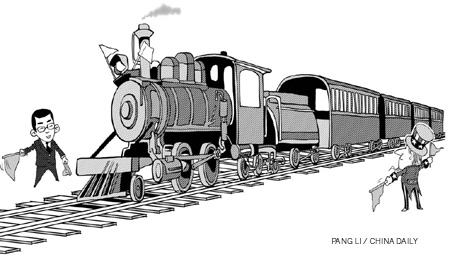Hu's visit charts course for future

President Hu Jintao's state visit to the United States this week is a crucial moment when it is possible to steer relations between the US and China - which many fear will inevitably clash - onto a stable course of cooperation and peaceful competition, for years or even decades to come.
The past year produced many warning signs of potential trouble as debates erupted on both sides about the other's intentions. Many in the US suspect China is trying to steal US jobs by unfair means and to knock the US from its leading position in world affairs. Many in China suspect the US is trying to "contain" China's return to greatness and its regional influence.
Fortunately, leaders in both countries over the past few months have refrained from the temptation to presume the worst about the other. They have worked to develop greater cooperation in the management of the many security, economic, and political issues that naturally arise among such different and globally engaged societies. They have raised their vision above the journalism of the day.
The Barack Obama administration reached out to the Chinese government last September, and together they set forth a road map to rebuild momentum in what they call a positive, cooperative, and comprehensive relationship.
Subsequently, the previously strained military-to-military relations were formally restored. The Joint Commission on Commerce and Trade held its most successful meeting yet in addressing trade and market access issues. China's currency increased in real terms by 10 percent, relieving both trade tension and China's domestic inflation. The US and China also reached a consensus on verification to mitigate the effects of climate change.
Perhaps most significantly, Chinese officials have recently reiterated their commitment to "peaceful development," and acknowledged that the US will enjoy global leadership for decades to come. When President Hu visits Washington, his reiteration of this policy stance will be welcome and helpful in reducing mutual mistrust.
 0
0 






